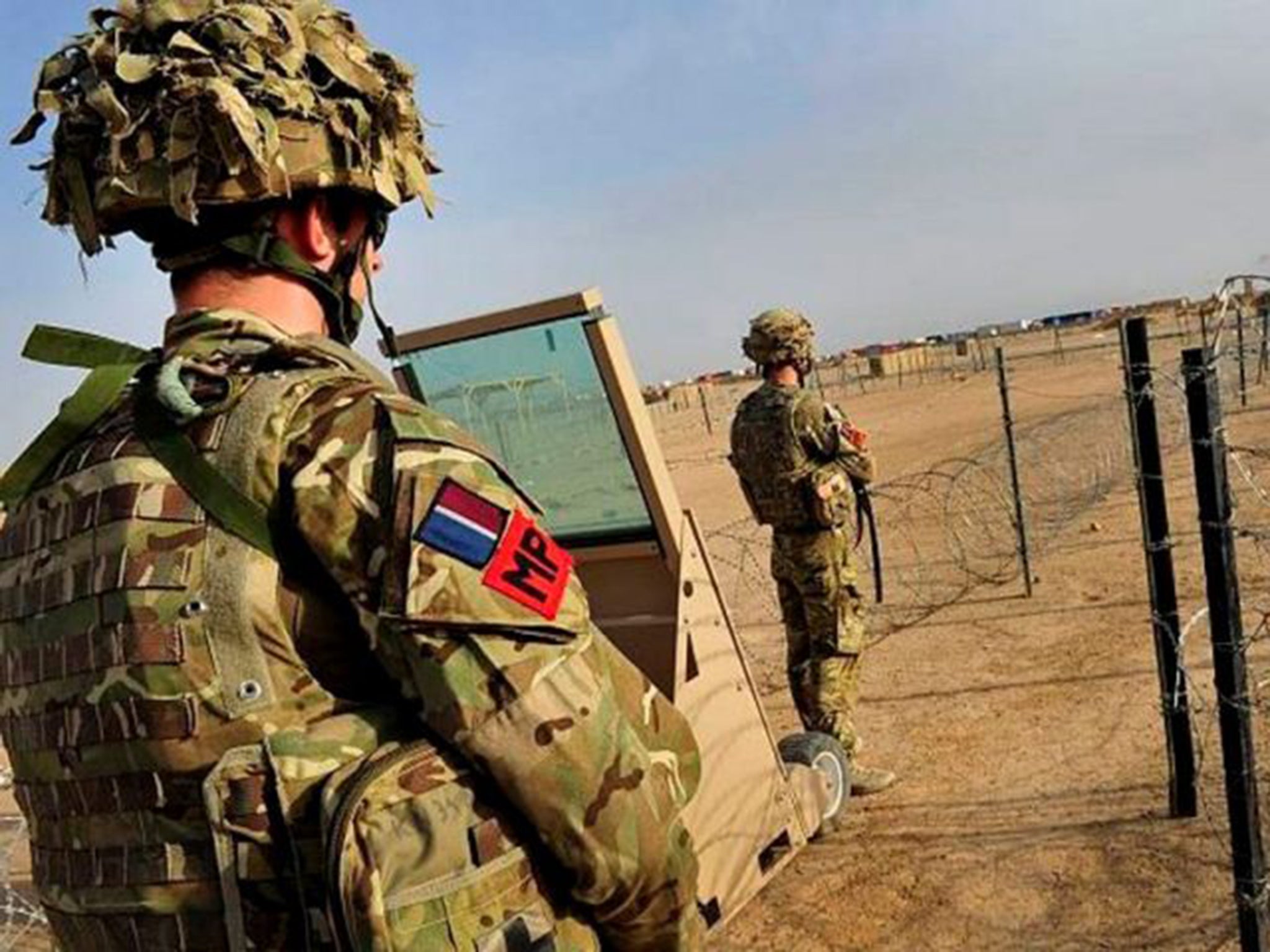Senior military officers are failing to refer assault and sexual offences to police, report warns
A culture of closing ranks to protect suspects has become a serious concern

Senior military officers are failing to refer crimes such as assault and sexual offences to the Royal Military Police (RMP), and a culture of closing ranks to protect suspects is a serious concern, Her Majesty’s Inspectorate of Constabularies (HMIC) has warned.
The issues are raised in a new report that examines a HMIC inspection into the way in which the RMP investigates crimes.
Although commanding officers have the power to deal with certain offences themselves, they are supposed to refer more serious offences, specified in Schedule 2 of the Armed Forces Act 2006, to the RMP.
Yet the report, released this week, states: “There were occasions when crimes were not always reported to the RMP.”
It adds: “We were concerned to hear from a small number of RMP staff of a few occasions when commanding officers had decided to deal with offences that, based upon the facts presented to us, should have been referred to the RMP. Examples given included assault and sexual offences.”
HMIC inspectors were unable to corroborate the claims, but “were this the case, it would be unacceptable as such action compromises the independence of any investigation, sharing of information and care for the victims”.
And a worrying culture of covering up for those accused is cited in the report. “We also found that RMP staff occasionally face reluctance on the part of potential witnesses to help investigations and some incidents of witness intimidation.”
It adds: “It was explained to us that the military culture of trust and loyalty in teamwork can lead to soldiers ‘closing ranks’. While we understand the Army requires good teamwork to be effective, this is a serious matter.”
Another concern was crimes being improperly recorded. “All incidents involving firearms, ammunition and explosives must be recorded as a crime. However, we were told on a number of occasions incidents were not recorded as crimes; rather, they had been recorded on ‘COPPERS’ [an RMP database] as lost property.”
And intelligence about potential offending “was not managed consistently well. In some cases the intelligence would be acted upon, but in other cases it would not because there was insufficient resource within the RMP regiments to deal with the intelligence.”
Although the management of the police force is judged to be “good” in general terms, a number of areas “require improvement” such as collecting and using intelligence, the recording of crime, the oversight of investigations, and training.
A series of recommendations the RMP has been asked to implement by the end of this month includes finding out if the force can fall under the Independent Police Complaints Commission (IPCC). If this is possible, then this should happen by the end of the year, says the report. Other changes necessary by the end of this month include having an accurate record of crime and a way of holding investigators to account. The head of the RMP, the Provost Marshal, should also set up a system to monitor all allegations of Schedule 2 offences and check referral by CO’s to the police force. Another of the recommendations calls on the Chief of General Staff and the Provost Marshal to communicate their “clear expectations for the co-operation of witnesses with RMP investigations”.
In a statement to The IoS, an HMIC spokesperson said: “This is the first time the law has enabled the RMP to be inspected by an independent inspectorate and we found them to be very open and transparent, as well as keen to improve.” They added: “The RMP is a unique force with a small number of officers operating around the world and cannot be compared to civilian forces ... challenges that need to be addressed include standards to achieve accurate crime recording and consistently high quality and proportionate oversight of investigations ... we are pleased our recommendations to the Secretary of State have been accepted.”
A ministry spokesperson said: “The MOD and Army welcomes this positive report ... and we are very grateful to Her Majesty’s Inspectorate of Constabulary.... HMIC has highlighted a few areas for further improvements and made recommendations which are all being addressed ....”
Join our commenting forum
Join thought-provoking conversations, follow other Independent readers and see their replies
Comments
Bookmark popover
Removed from bookmarks